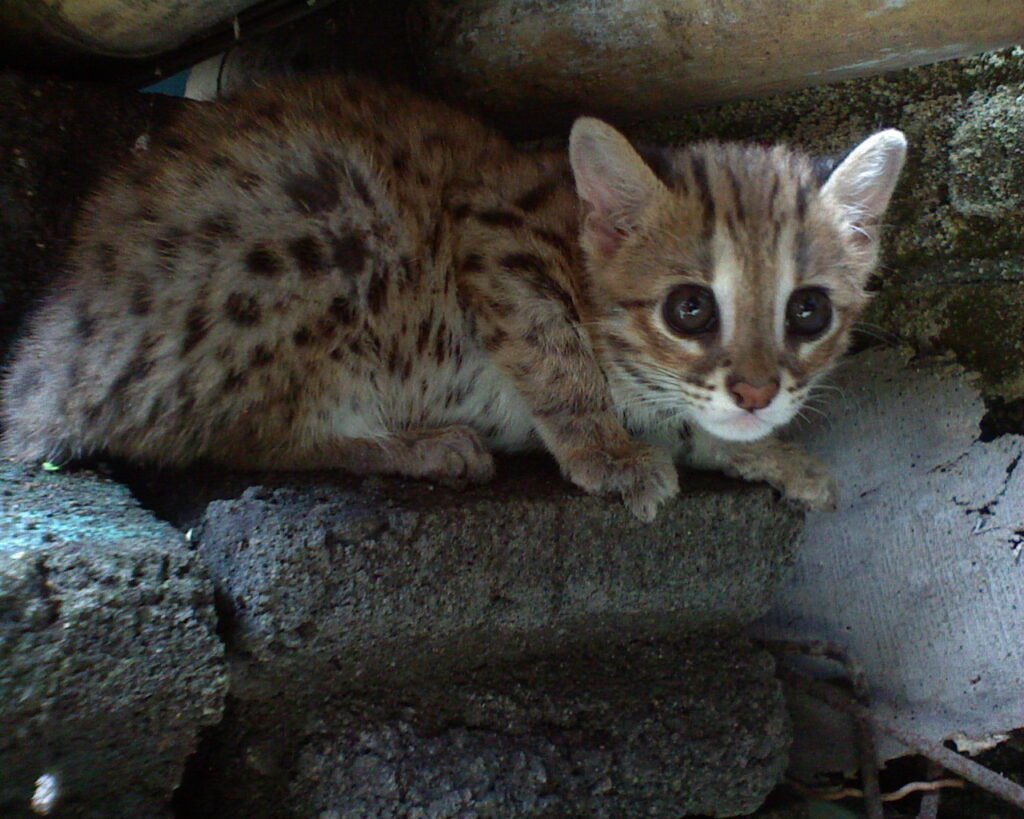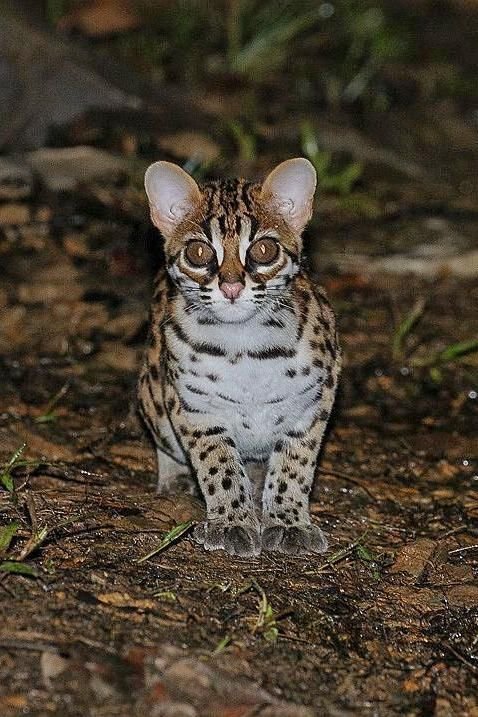
The Sunda leopard cat, Prionailurus javanensis, is a small wild cat native to the Sundaland islands of Southeast Asia, including Borneo, Sumatra, Java, Bali, and parts of the Philippines. Until recently, it was considered a subspecies of the mainland leopard cat, but genetic research confirmed its status as a distinct species. This agile feline is characterized by a slender body, relatively long legs, and a coat adorned with black spots and rosettes that vary in size and clarity depending on the island. Its rounded ears and prominent dark stripes on its small head are also distinctive. While its natural habitat is lowland tropical evergreen forest, the Sunda leopard cat is remarkably adaptable and can also be found in human-modified landscapes, including agricultural areas like oil palm and rubber plantations, as long as sufficient cover is available. It is primarily nocturnal and terrestrial, preying mainly on rodents, but also consuming birds, frogs, lizards, and snakes.

The Sunda leopard cat plays a significant ecological role as a highly adaptable mesopredator in the island ecosystems it inhabits. By preying on small mammals, particularly rodents that are often considered pests in agricultural areas, it acts as a natural form of pest control, benefiting local farmers and reducing the need for chemical interventions. Its ability to persist in human-modified landscapes, such as plantations, highlights its resilience and its contribution to maintaining biodiversity even in altered environments. The presence of healthy populations of Sunda leopard cats can indicate the availability of a robust small-prey base and a functioning local food web. Therefore, the conservation of the Sunda leopard cat is crucial not only for the survival of this adaptable and ecologically valuable feline but also for supporting sustainable agricultural practices and the overall ecological health of the vital island landscapes of Southeast Asia.
Every day, wild cats around the world face threats like habitat loss, poaching, and natural climate progression. But hope isn’t lost. With your support, we can protect these majestic animals and preserve their habitats.
Join our growing community of wildlife champions and help create a safer future for all 40 wild cat species.
Zoo-EV is a nonprofit organization dedicated to the protection and preservation of the world’s 40 wild cat species through education, community engagement, and conservation initiatives. Zoo-EV is recognized as a 501(c)(3) tax-exempt organization by the IRS, with the Employer Identification Number (EIN) 88-3636567.